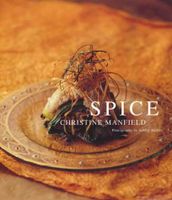Advertisement
Sauces
Appears in
Published 1999
Every sauce I make has a spice component. Assertive and complex yet refined flavours can shine in a sauce, giving balance to a dish, making it complete. The art of sauce-making requires a finely tuned palate that can pick up nuances, the subtlety of the ingredients, and pull them together to create a whole. Sauces give length of palate to the food they accompany, so they should be complementary by their very nature. The spices and aromatics used should build on the flavours used in the rest of the dish; they should certainly not override them. Spices Were Used extensively in sauce-making from Roman times through to the eighteenth and nineteenth centuries, when this practice went into decline. Today the fundamentals of cooking and sauce-making have become part of a global language, and we now have the flexibility to adopt and adapt the rules, to create a new palette of flavours. A Good Sauce takes time to make: it needs resting, settling and skimming to rid it of any impurities. But the most important part of preparing a good sauce is having an excellent base stock that provides unequalled flavour, something that cannot be found in a packet or tin. Stocks and sauces can be prepared ahead of time and stored in the refrigerator or freezer, making the final cooking, assembly and serving much easier. The sauces in this chapter accompany specific recipes, so read carefully and be patient!

